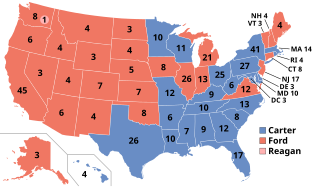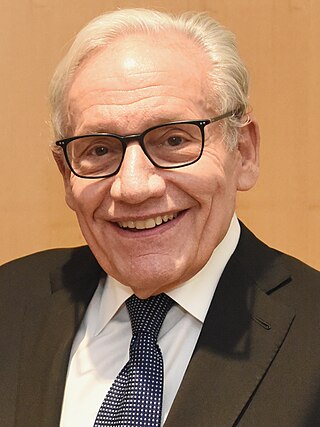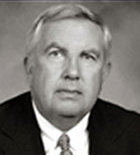
The 2000 United States presidential election was the 54th quadrennial presidential election, held on Tuesday, November 7, 2000. The Republican nominee, Governor George W. Bush of Texas, the eldest son of George H. W. Bush, narrowly defeated incumbent Democratic Vice President Al Gore. It was the fourth of five U.S. presidential elections, and the first since 1888, in which the winning candidate lost the popular vote, and is considered one of the closest U.S. presidential elections, with long-standing controversy about the result. Gore conceded the election on December 13.

The 1992 United States presidential election was the 52nd quadrennial presidential election, held on Tuesday, November 3, 1992. Democratic Governor Bill Clinton of Arkansas defeated incumbent Republican President George H. W. Bush and independent businessman Ross Perot of Texas. The election marked the end of a period of Republican dominance in American presidential politics that began in 1968, and also marked the end of 12 years of Republican rule of the White House, as well as the end of the Greatest Generation's 32-year American rule and the beginning of the baby boomers' 28-year dominance until 2020. It was the last time the incumbent president failed to win a second term until Donald Trump in 2020, as well as the first election since 1932 in which an elected incumbent Republican president was defeated.

The 1976 United States presidential election was the 48th quadrennial presidential election, held on Tuesday, November 2, 1976. The Democratic nominee, former Georgia governor Jimmy Carter, narrowly defeated incumbent Republican President Gerald Ford. This was the first presidential election since 1932 in which the incumbent was defeated, as well as the only Democratic victory of the six presidential elections between 1968 and 1988.

The Clinton–Lewinsky scandal was a sex scandal involving Bill Clinton, the president of the United States, and Monica Lewinsky, a White House intern. Their sexual relationship began in 1995—when Clinton was 49 years old and Lewinsky was 22 years old—and lasted 18 months, ending in 1997. Clinton ended televised remarks on January 26, 1998, with the later infamous statement: "I did not have sexual relations with that woman, Ms. Lewinsky." Further investigation led to charges of perjury and to the impeachment of Clinton in 1998 by the U.S. House of Representatives. He was subsequently acquitted on all impeachment charges of perjury and obstruction of justice in a 21-day U.S. Senate trial.

Robert Upshur Woodward is an American investigative journalist. He started working for The Washington Post as a reporter in 1971 and now holds the honorific title of associate editor though the Post no longer employs him.
"Vast right-wing conspiracy" is a phrase popularized by a 1995 memo by political opposition researcher Chris Lehane and then referenced in 1998 by the then First Lady of the United States Hillary Rodham Clinton, in defense of her husband, President Bill Clinton, characterizing the continued allegations of scandal against her and her husband, including the Lewinsky scandal, as part of a conspiracy by Clinton's political enemies. The term has been used since, including in a question posed to Bill Clinton in 2009 to describe verbal attacks on Barack Obama during his early presidency. Hillary Clinton mentioned it again during her 2016 presidential campaign.

Fred Fisher Fielding is an American lawyer. He held the office of White House Counsel for US Presidents Ronald Reagan and George W. Bush in addition to serving as an associate and deputy White House counsel for Richard Nixon under John Dean. Fielding was also of counsel to the presidential transition of Donald Trump and a member of the 9/11 Commission. An alumnus of Gettysburg College, he is the namesake of that school's Fielding Center for Presidential Leadership Study.

The Senate Watergate Committee, known officially as the Select Committee on Presidential Campaign Activities, was a special committee established by the United States Senate, S.Res. 60, in 1973, to investigate the Watergate scandal, with the power to investigate the break-in at the Democratic National Committee (DNC) headquarters at the Watergate office complex in Washington, D.C., and any subsequent cover-up of criminal activity, as well as "all other illegal, improper, or unethical conduct occurring during the controversial 1972 presidential election, including political espionage and campaign finance practices".
In politics, opposition research is the practice of collecting information on a political opponent or other adversary that can be used to discredit or otherwise weaken them. The information can include biographical, legal, criminal, medical, educational, or financial history or activities, as well as prior media coverage, or the voting record of a politician. Opposition research can also entail using "trackers" to follow an individual and record their activities or political speeches.

Sidney Stone Blumenthal is an American journalist, political operative, and Lincoln scholar. A former aide to President Bill Clinton, he is a long-time confidant of Hillary Clinton and was formerly employed by the Clinton Foundation. As a journalist, Blumenthal wrote about American politics and foreign policy. He is also the author of a multivolume biography of Abraham Lincoln, The Political Life of Abraham Lincoln. Three books of the planned five-volume series have already been published: A Self-Made Man, Wrestling With His Angel, and All the Powers of Earth. Subsequent volumes were planned for later.

Charles Frederick Carson Ruff was a prominent American lawyer based in Washington, D.C., and was best known as the White House Counsel who defended President Bill Clinton during his impeachment trial in 1999.
Claims of media bias in the United States generally focus on the idea of media outlets reporting news in a way that seems partisan. Other claims argue that outlets sometimes sacrifice objectivity in pursuit of growth or profits.

Lanny Jesse Davis is an American political operative, lawyer, consultant, lobbyist, author, and television commentator. He is the co-founder and partner of the law firm of Davis Goldberg & Galper PLLC, and co-founder and partner of the public relations firm Trident DMG. From 1996 to 1998, he served as a special counsel to President Bill Clinton, and was a spokesperson for the President and the White House on matters concerning campaign-finance investigations and other legal issues.

Matthew John Dowd is an American political pundit and consultant. He was the chief strategist for the Bush–Cheney 2004 presidential campaign and was an ABC News political analyst. On September 29, 2021, he announced a run for lieutenant governor of Texas as a Democrat against the incumbent, Dan Patrick. On December 7, 2021, Dowd announced the end of his campaign.

Thomas Beall Griffith is an American lawyer and jurist who served as a U.S. circuit judge of the United States Court of Appeals for the District of Columbia Circuit from 2005 to 2020. Currently, he is a lecturer on law at Harvard Law School, a fellow at the Wheatley Institute at Brigham Young University (BYU), and special counsel in the Washington, D.C. office of the law firm of Hunton Andrews Kurth.

Lawrence Edward Walsh was an American lawyer, a United States district judge of the United States District Court for the Southern District of New York and United States Deputy Attorney General who was appointed Independent Counsel in December 1986 to investigate the Iran–Contra affair during the Reagan Administration.
Social media and political communication in the United States refers to how political institutions, politicians, private entities, and the general public use social media platforms to communicate and interact in the United States.

The cultural and political image of Hillary Clinton has been explored since the early 1990s, when her husband Bill Clinton launched his presidential campaign, and has continued to draw broad public attention during her time as First Lady of the United States, U.S. Senator from New York, 67th United States Secretary of State, and the Democratic Party's nominee for President of the United States in the 2016 election.
The Lincoln Bedroom for contributors controversy was an American political controversy in the 1990s during the Clinton Administration. It refers to the alleged selling of overnight stays in the Lincoln Bedroom in the White House in return for political campaign contributions. It occurred in the context of the larger and somewhat separately focused 1996 United States campaign finance controversy. Despite allegations of wrongdoing the justice department never opened an investigation or pressed criminal charges in connection to the Lincoln Bedroom matter.

The 1972 United States presidential election in Missouri took place on November 7, 1972. All fifty states and the District of Columbia were part of the 1972 United States presidential election. Voters chose 12 electors to the Electoral College, who voted for president and vice president.















